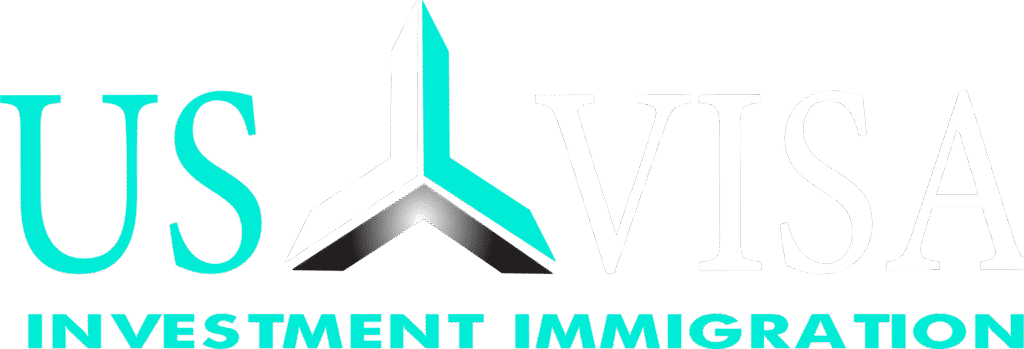- Blog
USCIS to Consider “Anti-Americanism” in
Immigrant Benefit Requests
Amit Singh
August 30, 2025
USCIS to Consider “Anti-Americanism” in Immigrant Benefit Requests

USCIS to Consider “Anti-Americanism” in Immigrant Benefit Requests: Our View on Impact for EB-5 Investors and Adjustment of Status Applicants from India
Introduction
In August 2025, the U.S. Citizenship and Immigration Services (USCIS) issued new policy guidance allowing adjudicating officers to factor in “anti-Americanism” when reviewing green card and other immigration benefit applications.
At U.S. Visa India Services, we believe this update introduces a significant layer of discretionary risk for foreign nationals—particularly Indian EB-5 investors and Adjustment of Status (AOS) applicants already in the U.S. on temporary visas like H-1B, L-1, or F-1. While the EB-5 Reform and Integrity Act of 2022 continues to govern the investment framework, this policy change gives USCIS more latitude to deny applications based on perceived affiliations, beliefs, or conduct.
As part of our U.S.–India Visa Services, we are providing this advisory to help our clients and prospective investors navigate this evolving immigration environment.
What Is Considered “Anti-Americanism” Under the New USCIS Policy?
According to the updated USCIS guidance, “anti-Americanism” includes:
- Past associations, public statements, or affiliations that suggest hostility toward theS.
- Online activity or memberships perceived as opposing American values
- Involvement in antisemitic or extremist ideologies
- Direct or indirect ties to designated terrorist organizations
USCIS officers are now empowered to assess not only the applicant’s financial eligibility but also background, online presence, social and familial connections, and public behavior—applying these as discretionary factors in adjudication.
Why This Matters for EB-5 Investors from India
The EB-5 Immigrant Investor Program provides a path to a U.S. green card by investing a minimum of USD 800,000 in a qualifying U.S. business that creates jobs. However, the final green card approval—especially in the Adjustment of Status phase—is discretionary.
Even if the investment and job creation requirements are satisfied, USCIS now has broader authority to deny applications if an applicant is found to be associated with activities deemed “anti- American.”
Risks Introduced by the New Policy
- Source of Funds Investigations: USCIS may assess not just the legitimacy of funds but whether the source has any ties to sanctioned entities or politically sensitive
- Digital Footprint Scrutiny: Social media posts, articles, memberships, or public statements may now be reviewed for ideological alignment with U.S. values.
- Family Background Checks: Since the EB-5 visa covers dependents (spouse and children), their affiliations may also be subject to vetting.
Heightened Scrutiny for Adjustment of Status (AOS) Applicants
Indian EB-5 investors residing in the U.S. often choose the AOS route (Form I-485) to obtain their green cards without leaving the country. Under this new policy, applicants can expect:
- Deeper background vetting and extended interviews
- RFEs (Requests for Evidence) relating to personal beliefs or affiliations
- Stricter enforcement of alien registration requirements
- Potential processing delays due to additional security reviews
Our Recommendations for Indian EB-5 Investors and AOS Filers
As part of our ongoing work in U.S. Visa India Services, we advise EB-5 investors and applicants to take the following steps to mitigate risks under this new policy framework:
1. Ensure Comprehensive Source of Funds Documentation
- Include all relevant tax returns, bank records, loan agreements, sale deeds, and notarized affidavits.
- Avoid any unexplained or informal transfers.
2. Audit Your Online Presence
- Review your social media and public-facing platforms for posts that could be misinterpreted.
- If necessary, remove or clarify potentially controversial content.
3. Choose Credible EB-5 Projects
- Invest only in TEA or rural projects backed by reputable regional centers with clean compliance histories and third-party audits.
4. Prepare Thoroughly for USCIS Interviews
- Expect questions that go beyond your Be prepared to discuss affiliations, memberships, and ideological leanings if asked.
5. Consult an Experienced Immigration Attorney
- The discretionary nature of this policy means that professional legal guidance is Our team works closely with legal experts to support clients through RFEs and interviews.
Our View on the USCIS Anti-Americanism Policy
While this update does not alter the core EB-5 legal framework, it introduces a subjective layer of review that could impact otherwise compliant applications.
At U.S. Visa India Services, we believe it is essential for Indian investors to take a proactive approach—ensuring both financial and personal transparency throughout the EB-5 process.
Our U.S. Visa India Services team is closely monitoring this development and is available to advise clients on how best to position themselves for success under this stricter vetting environment.
Final Thoughts
Indian nationals considering the EB-5 visa or planning to adjust status in the U.S. must now take extra precautions to ensure that their background, affiliations, and online activity align with the values and expectations of U.S. immigration authorities.
With the right planning and professional support, investors can still navigate this policy shift successfully and achieve their goal of securing a U.S. green card.
Need help with your EB-5 or AOS application?
Reach out to our U.S. Visa India Services team for a confidential consultation and expert guidance.
